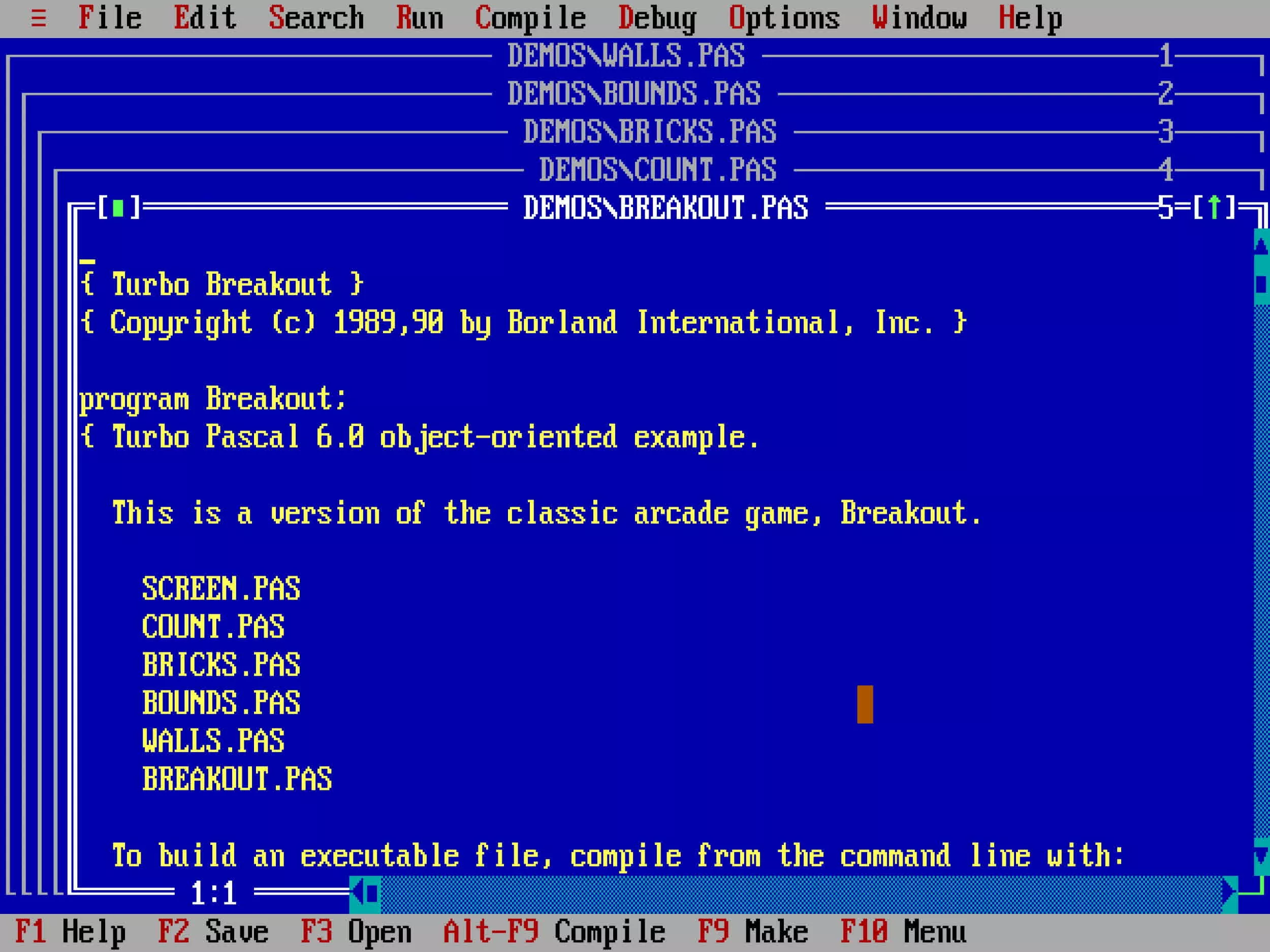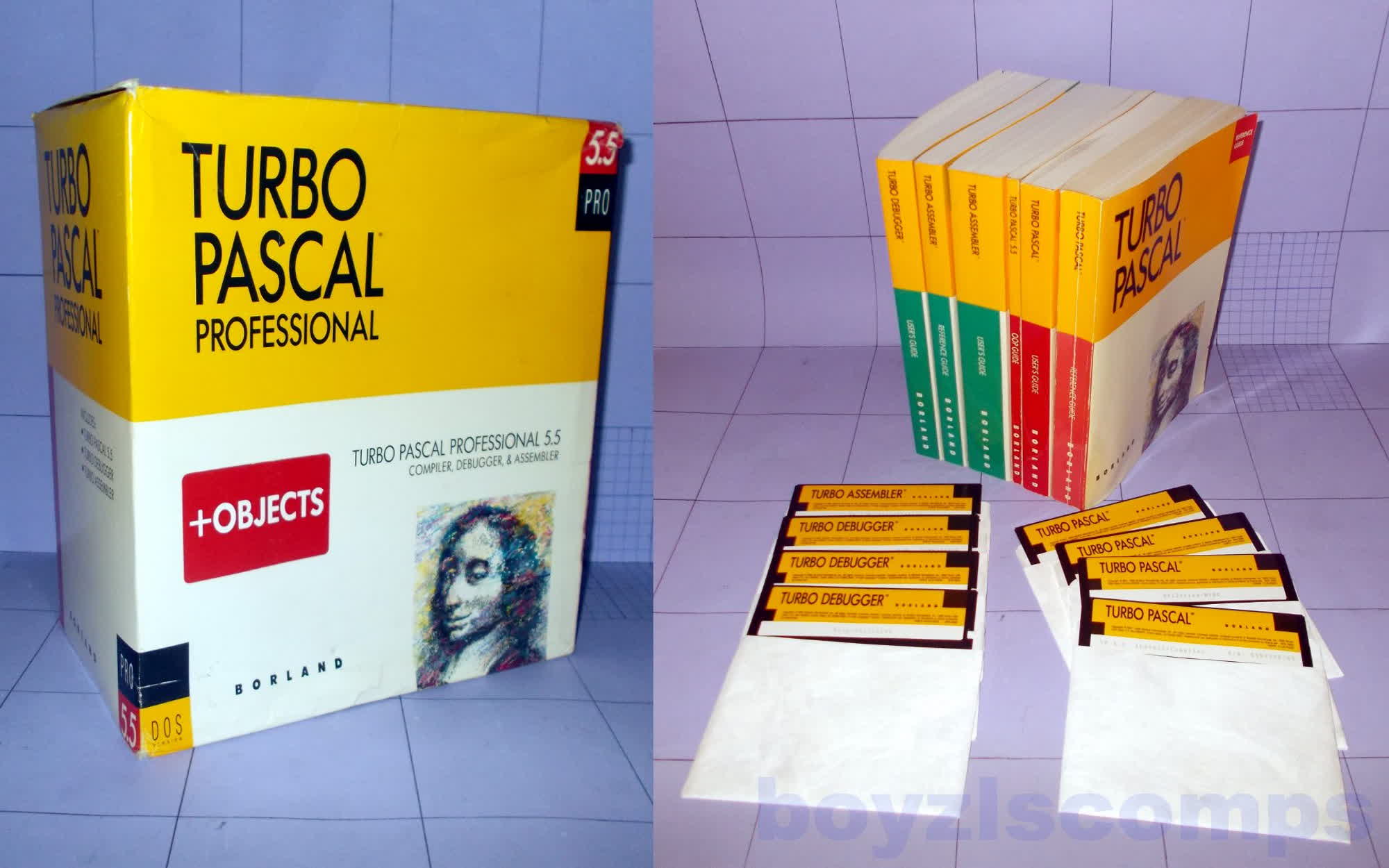The big picture: Pascal is an imperative, procedural programming language developed by Swiss computer scientist Niklaus Wirth. He designed it as a small and efficient language aimed at encouraging good programming practices. Pascal made its initial appearance in 1970, gaining prominence on IBM PC systems a couple of decades later, primarily due to the popularity of Borland's Turbo Pascal.
Turbo Pascal was initially released in 1983 for DOS and CP/M-based systems, injecting a breath of fresh air into the home computer programming market. While competing products (and languages) were essentially clunky patchworks of different programming tools, the Pascal dialect conceived by Anders Hejlsberg at Borland offered an all-in-one environment focused on performance and an optimized workflow.
Turbo Pascal stands out as one of the first instances of an integrated development environment (IDE), providing a text-based interface through which developers could write their code, compile it, and finally link it with runtime libraries. The early IDE, written in Assembly, eschewed the use of floppies, instead building the code directly in RAM for an unprecedented performance boost.
The language demonstrated superior speed, greater convenience, and a more affordable price compared to its competition. Philippe Kahn, Borland's CEO who initially conceptualized turning the new language into an all-in-one product, decided to sell the software via mail orders for just $49.95, establishing a market presence for the then-newly founded company.

The first version of Turbo Pascal had significant limitations, as the software could only produce .COM binary files for DOS and CP/M. Several new iterations followed, and in 1987, Turbo Pascal 4 brought numerous improvements, making it a much more mature development platform. It discontinued support for CP/M and CP/M-86, and the integrated compiler gained the ability to compile .EXE binary files under DOS.
Turbo Pascal 4 also introduced the now-familiar full-screen text GUI with pull-down menus, while version 5, released in 1988, delivered the default blue background. One year later, Turbo Pascal 5.5 added support for object-oriented programming features, including classes and inheritance, along with a new step-by-step debugger.
Turbo Pascal 6 and 7 marked the final two DOS versions of the IDE, introducing support for inline assembly and enabling the creation of Windows (3.x) executables and DLL libraries. Eventually, Borland phased out Turbo Pascal to concentrate on Delphi (Object Pascal). However, Turbo Pascal somewhat survived the great DOS prompt extinction.
Borland released four different versions of Turbo Pascal for DOS (1, 3.02, 5.5, 7.01) as freeware due to their historical significance. Additionally, Free Pascal is a modern, open-source compiler that supports Turbo Pascal and various dialects of the Pascal language family. Seasoned programmers experiencing nostalgia can even download a DOSBox-based version of Turbo Pascal to continue coding as they did in the old days of DOS.
